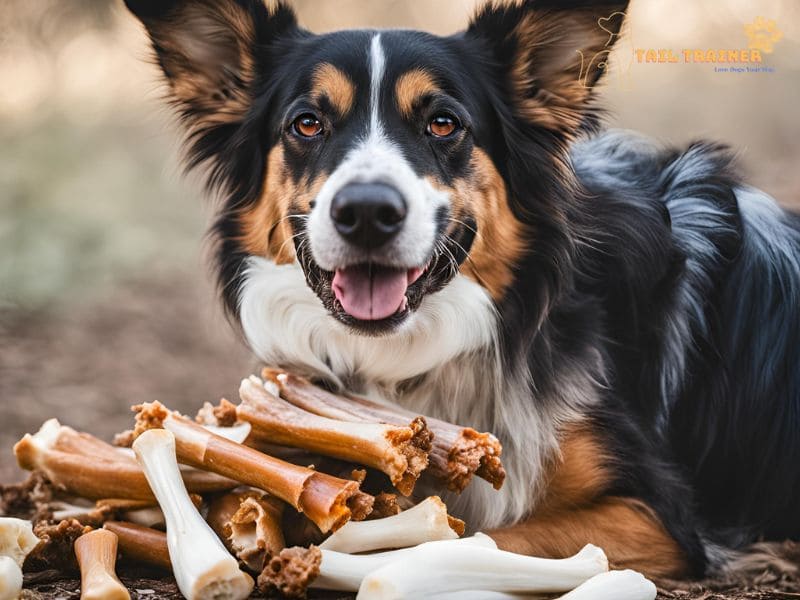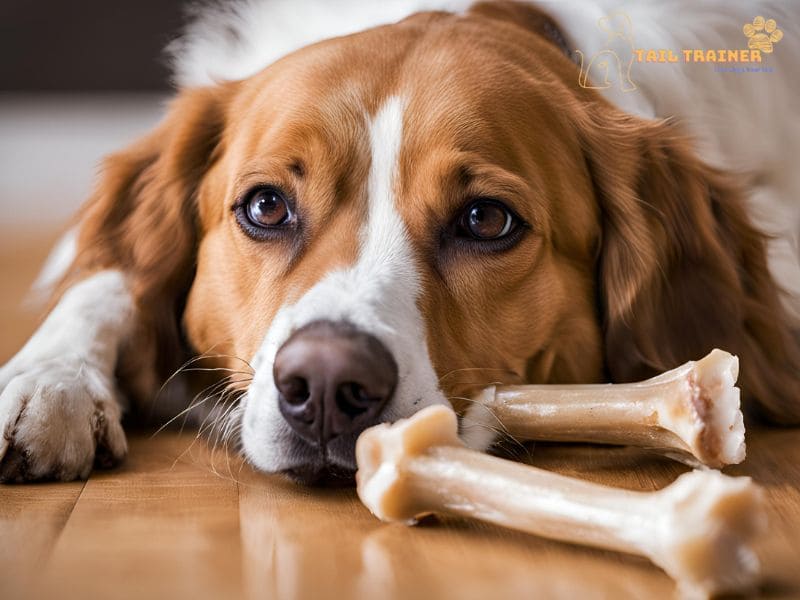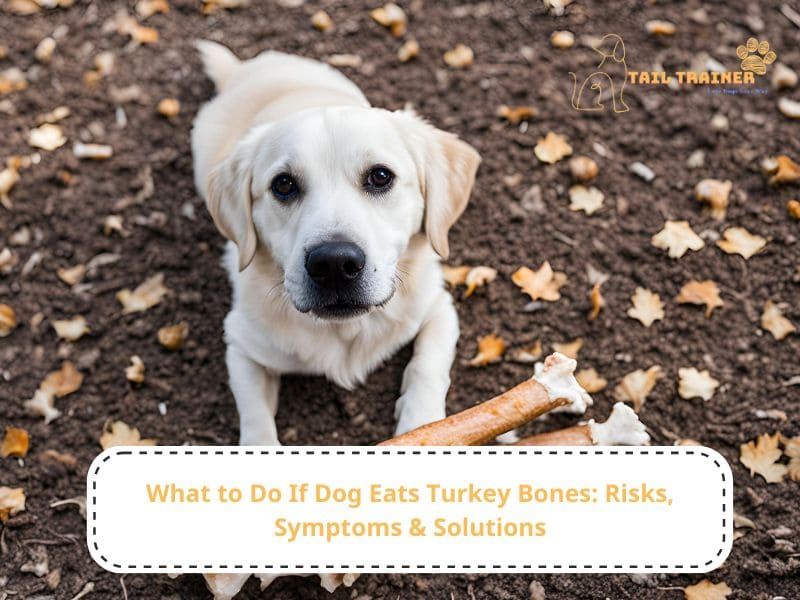If your dog eats turkey bones, it can be a dangerous situation due to the risk of choking or digestive blockages. Prompt action is essential to ensure your dog’s safety. For more helpful tips on pet care, visit Tail Trainer, your trusted source for dog training and health advice.
Key Takeaways
If a dog eats turkey bones, it can lead to choking, gastrointestinal blockages, or even internal injuries. Monitor your dog closely for signs of distress and contact a vet immediately.
What to Do If Your Dog Eats Turkey Bones

Turkey bones, whether cooked or raw, can be hazardous for dogs. Cooked bones are especially brittle, making them more likely to splinter and cause injuries. Raw bones can also pose risks, including blockages and bacterial infections. Here’s how to respond quickly if your dog has eaten turkey bones.
Immediate Steps to Take
- Stay calm: Dogs can sense stress, which might make them panic or hide if they’re already in distress.
- Check your dog’s mouth: Carefully open your dog’s mouth to see if the bones are still there and can be safely removed.
- Do NOT induce vomiting: Inducing vomiting could cause further injury as the bones come back up.
- Monitor for symptoms: Look for signs of choking, vomiting, or abdominal pain. If any symptoms appear, contact a veterinarian immediately.
- Call your vet: Even if your dog appears fine, call your vet to discuss the situation and determine the next steps.
Potential Dangers of Turkey Bones
When consumed, turkey bones can pose several risks, including choking, digestive blockages, and internal injuries. Understanding these dangers will help you take appropriate preventive and responsive measures.
Choking Hazard
Bones can get lodged in a dog’s throat, causing immediate breathing difficulties.
- Signs of choking: Watch for coughing, gagging, drooling, or pawing at the mouth. If you notice these signs, it’s important to act fast by getting to a vet.
Digestive Blockages
Turkey bones can cause blockages in the esophagus, stomach, or intestines. This can lead to severe complications, especially if not treated promptly.
- Symptoms of blockages: These may include vomiting, lack of appetite, bloating, or lethargy. Immediate veterinary care is crucial in such cases.
- Treatment: In some cases, surgical intervention may be necessary to remove the bone from the digestive tract.
Internal Injuries
Turkey bones, particularly when splintered, can puncture the stomach or intestines, leading to internal bleeding or infection.
- Signs of internal injuries: Look for blood in vomit or stool, abdominal pain, or signs of shock, such as weakness or pale gums.
- Emergency care: Any sign of internal injury requires immediate veterinary attention.
Preventing Dogs from Eating Turkey Bones

Preventing access to turkey bones is the best way to avoid these risks.
Proper Food Disposal
- Keep leftovers secure: Dispose of turkey bones immediately in a dog-proof trash can.
- Avoid table scraps: Never give your dog bones or meat scraps from the table, as it can create a habit of scavenging.
Safe Treat Alternatives
Instead of turkey bones, offer your dog safe chew toys or treats designed to be digestible and provide dental benefits.
- Dog-friendly bones: Look for vet-approved bones made from rawhide or other digestible materials that are designed for dogs.
For safer chew options and training tips, consider enrolling your dog in our Dog Training Course. It covers everything from basic commands to avoiding dangerous situations like eating harmful objects.
When to Visit a Veterinarian
If your dog exhibits any unusual behavior after eating turkey bones, consult a vet.
Warning Signs to Watch For
- Persistent vomiting: This could indicate a blockage or injury.
- Difficulty defecating: Signs of a blockage in the lower intestines.
- Lethargy or signs of pain: These could suggest internal injuries or other complications.
Emergency Care
In serious cases, emergency veterinary services may be necessary, especially if there are signs of internal bleeding or severe blockages.
Frequently Asked Questions
1. What should I do if my dog swallows a turkey bone whole?
If your dog swallows a turkey bone, monitor them closely for signs of choking, distress, or digestive issues. Contact your vet for further advice, even if your dog seems fine initially.
2. Are turkey bones more dangerous than chicken bones?
Yes, turkey bones are generally larger and harder, making them more likely to cause choking or blockages compared to smaller chicken bones.
3. Can turkey bones be safe for some dogs?
No, turkey bones, whether cooked or raw, should never be given to dogs. The risks of choking, blockages, and internal injuries are too high.
4. What can I give my dog if they are used to chewing bones?
Offer safe alternatives like rawhide bones, nylon chew toys, or rubber chew treats. These are safer and can help satisfy your dog’s chewing instinct.
5. How can I keep my dog away from turkey bones during holiday meals?
Keep the bones out of reach, secure trash bins, and train your dog to stay away from the table. Consider using a baby gate or crate during meals to keep your dog away from the dining area.
For more dog care tips and training advice, visit Tail Trainer regularly.
